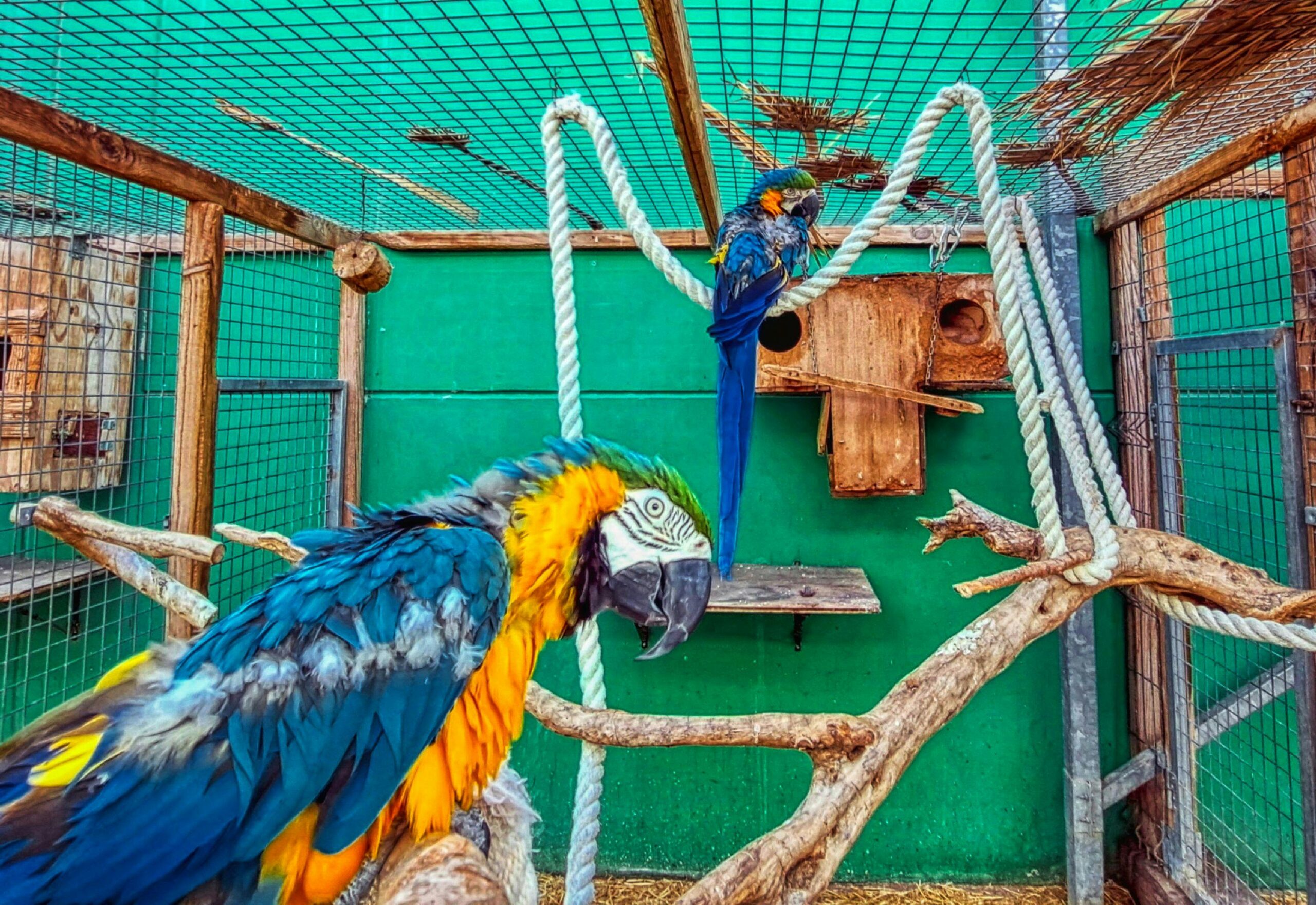
At Evergreen Aviaries, our care doesn’t stop when a parrot leaves our aviary — it continues through guidance, education, and lifelong support. We want every bird we raise to live a happy, healthy, and well-adjusted life with its new family. Here are our essential parrot care recommendations for all new owners
1. Nutrition & Feeding
A healthy diet is the foundation of your parrot’s well-being.
Feed a balanced mix of premium pellets, fresh fruits, vegetables, nuts, and seeds in moderation.
• Avoid avocado, chocolate, caffeine, alcohol, and salty or sugary foods — they are toxic to parrots.
• Always provide fresh, clean water daily.
• Offer foraging toys or fresh branches to keep them mentally engaged while they eat.
2. Housing & Environment
Your parrot’s cage should be spacious, secure, and easy to clean, with enough room for wing-flapping and climbing.
• Use stainless-steel cages and non-toxic perches (natural wood preferred).
• Place the cage in a well-lit, quiet area — away from direct sunlight, drafts, and kitchen fumes.
• Keep the temperature steady, ideally 65°F–80°F (18°C–26°C).
• Provide at least 10–12 hours of sleep each night in a dark, quiet room or with a cage cover.
3. Socialization & Bonding
Parrots are deeply social and emotional birds.
• Spend time talking, whistling, or gently interacting with them daily.
• Avoid isolation — parrots that are left alone for long periods may develop stress behaviors.
• Introduce new people or pets slowly, always with patience and positive reinforcement.
4. Enrichment & Mental Stimulation
Parrots are intelligent and curious by nature. Keep them mentally active with toys, puzzles, ropes, and safe branches.
Rotate toys weekly to keep them interesting, and let your parrot explore supervised areas of your home.
Boredom can lead to feather plucking or aggression — so keep life engaging!
5. Health & Grooming
Schedule annual avian vet checkups for health screenings and grooming.
Keep nails trimmed, wings clipped (if you choose), and feathers clean.
Monitor for any signs of illness such as lethargy, appetite loss, or changes in droppings — early detection is key.
6. Training & Routine
Parrots thrive on structure.
• Establish a consistent feeding and play schedule.
• Use positive reinforcement for training — treats, praise, or affection.
• Teach simple commands gradually, starting with “Step Up.”
Our Commitment to You
We provide every new owner with detailed care instructions and lifetime support. Whether it’s diet advice, behavior guidance, or general care questions — we’re always happy to help.
At Evergreen Aviaries, we don’t just raise parrots — we help you build a lifelong bond with your feathered companion.
